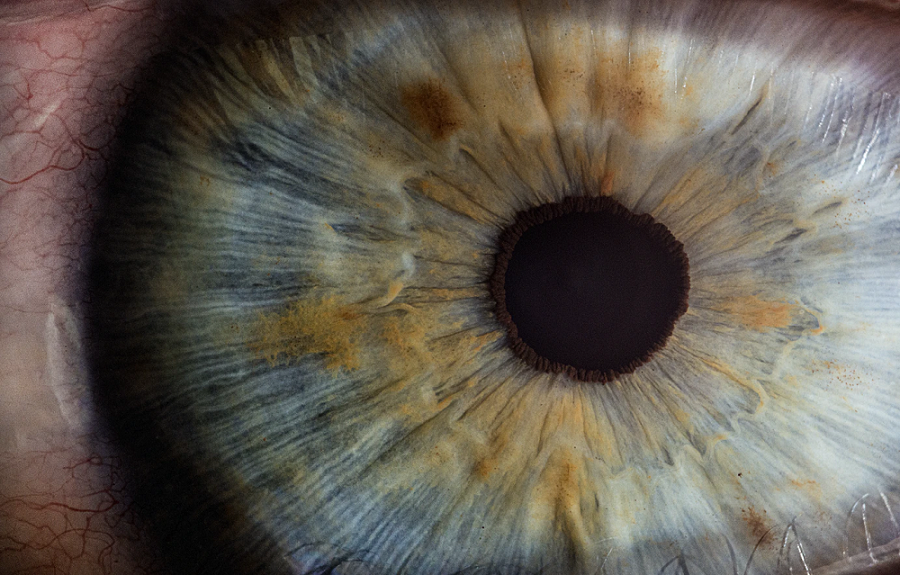Fuchs corneal dystrophy is a genetic disorder that affects the cornea in the eye. The cornea is the front surface area. The disorder typically affects older adults, even though the genetics for the condition are present at birth.
Corneal dystrophies will remain inactive until a person gets older. It is not until this time that the disorder starts to present symptoms and becomes detectable. However, it is worth mentioning, there have been cases of Fuchs corneal disorders that were not genetically linked. Some people can develop this disorder even when there has been no prior family history.
What Is Fuchs Corneal Dystrophy?
This eye disorder causes degenerative changes at the layer of cells within the cornea, specifically the layer referred to as the corneal endothelium. This layer in the cornea is responsible for regulating proper fluid levels to keep vision clear.
With Fuchs, excessive fluid is produced that can cause the cornea to swell. As it does, a gradual decrease in one’s vision is common. Clouding may also develop, similar to the clouding associated with cataracts.
As the cells continue to degenerate, tiny blisters or bumps can form on the cornea. Eventually, fluid builds up within the cornea, it causes the cornea to swell, creating an edema. As the edema forms, vision becomes more blurred and cloudier.
What Causes This Eye Disease?
Corneal dystrophies destroy the layer of cells in the corneal endothelium. The exact causes of this eye disease are not fully understood, other than the genetic link in most patients. Fuchs corneal disorders are slow to develop. The early stages of this disease can start to occur when you are in your 30s or 40s. However, its symptoms may not start to appear until you are in your 50s or 60s.
What Are Common Symptoms of This Eye Disease?
Fuchs corneal dystrophy progresses through two general stages. Initially, in the early stages, you may only notice blurry vision upon waking. After being awake for a while, the blurriness seems to subside, and you can see normally.
Another early symptom is having difficulties focusing in lower light levels. You may find that it is harder for your eyes to adjust. The objects you can see often look fuzzy, blurry, or even cloudy. You might notice lights have a halo-effect around them too.
As the disease progresses into the next stage, symptoms become more noticeable. This is because the fluid buildup in the cornea has started to cause swelling. If you notice one or more of the following, you should schedule an appointment with your eye doctor.
- Cloudy Vision
- Halo Vision
- Pain in One or Both Eyes
- Problems Focusing
- Light Sensitivity
- Gritty/Sandy Feeling in One or Both Eyes
- Inability to See at Night
- Problems with Night Vision
As you can imagine, many of these symptoms could indicate another type of eye problem. For example, a gritty/sandy feeling, like something is in your eye, could also be a symptom of pink eye (conjunctivitis). Problems with night vision could indicate that cataracts are starting to form. To rule out Fuchs, it is important to schedule an eye exam as soon as possible.
Diagnosing Corneal Dystrophies
You should inform your eye doctor of any current vision problems you have been experiencing. During your exam, your ophthalmologist or optometrist can use a special device called a slit lamp to examine the cornea.
The lamp helps them see changes in the cornea and corneal endothelium and the accumulation of fluid. The lamp uses high-powered magnification to help look for changes in the endothelial cells and the formation of small lesions where the fluid is retained.
They may also use a device to measure the thickness of the cornea. A thicker cornea can indicate swelling associated with Fuchs. Additionally, they will conduct routine vision testing to determine if your vision has decreased.
Treatments for Fuchs Corneal Dystrophy
The type of treatments prescribed for Fuchs corneal dystrophy will depend on how far the disease has progressed. In the early stages, special eye drops can be used to help remove the excess fluid buildup from the cornea and relieve swelling.
Patients with Fuchs that are experiencing light-sensitivity problems can be prescribed glasses with photochromic lenses to help. As the disease continues to progress, vision problems continue to worsen.
Some people experience pain in one or both eyes as a result of small ruptures occurring from excessive fluid accumulation and swelling. Once the disease reaches this point, corrective eye surgery is highly recommended.
One type of eye surgery is a full corneal transplant or penetrating keratoplasty. About two-thirds of the center corneal tissue is removed and replaced with healthy donor corneal tissue. Recovery can take up to a year before normal vision occurs.
Another eye surgery option is called endothelial keratoplasty. Instead of a full cornea transplant, the endothelium layer in the cornea is replaced with healthy donor tissue while leaving the existing upper layer of the cornea tissue in place. Recovery time is faster, and most patients report having 20/20 vision or better within a few days, either with or without glasses.
A newer type of endothelial keratoplasty eye surgery is called femtosecond laser-assisted Descemet stripping. A special laser is used to remove the endothelium layer and the Descemet’s membrane and replace these with healthy donor tissue. Recovery time is as fast or sometimes faster than regular endothelial keratoplasty eye surgery.
Can I Get Cataract Surgery if I Have Fuchs?
Since Fuchs tends to develop when we are older, it is not uncommon for people to also have cataracts. Cataract surgery can still be performed if you have Fuchs. However, many patients require some type of corneal transplant surgery as well.
Fortunately, these eye surgeries can be performed simultaneously to address both eye problems, so patients will have a faster recovery time.
For further information about Fuchs corneal dystrophy, or to schedule an eye exam to find out if you might have this eye disease, and learn about potential treatment options, please feel free to contact ADV Vision Centers at (805) 987-5300 today!



